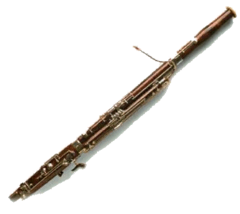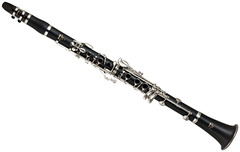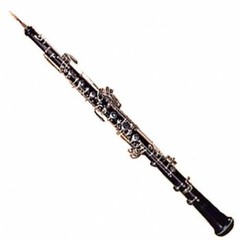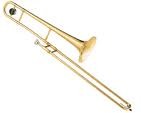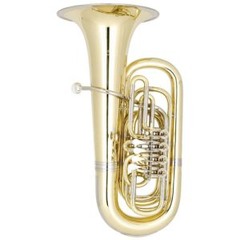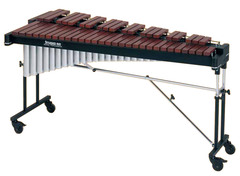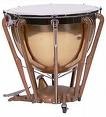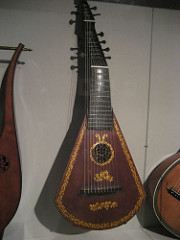Structure is not a crucial aspect of music
false
The Étude Op. 10 No. 12 in C minor by Frédéric Chopin is nicknamed Revolutionary because it started a major upheaval in Paris in 1820.
false
The term étude refers to pieces that are used to teach a particular technical skill to performers
true
An understanding of form enhances and improves one’s appreciation of music
true
Ternary form is one of the most common forms for all styles of music.
true
Which of the following is an example of a cadential point? (resting point)
excerpt a
Structure is important because it helps our minds begin to develop expectations about what will happen next in a piece of music
true
Form is a way of defining the organization of a piece of music.
true
Understanding form is not necessary for enhancing the appreciation of music.
false
Listen to this excerpt Listen to this excerpt from Section B of Chopin’s Étude in C minor.
What is the function of the left hand in the following excerpt?
Continues playing figurations (melodic patterns)
In the Étude Op. 10 No. 12 in C minor by Frédéric Chopin, the chords played by the right hand represent the accompaniment
false
Which section of Chopin’s Étude in C minor does the following excerpt come from?
B
Which example comes from Section A of Chopin’s Étude in C minor?
Example B
The Étude Op. 10 No. 12 in C minor by Frédéric Chopin is an example of three-part form
False; 2 part form
Listen to this excerpt from Chopin’s Étude in C minor.
Where does this excerpt happen in the piece?
Towards the end
The term timbre refers to the different sound sources used in a composition
true
Handel uses different combinations of dynamics and timbre to achieve unity and variety in See Here the Conqu’ring Hero Comes.
Which of the following two excerpts combines more instruments and louder dynamics?
Example A – Example A combines more instruments and louder dynamics
Handel uses different combinations of dynamics and timbre to achieve unity and variety in See Here the Conqu’ring Hero Comes.
Which of the following excerpts combines ensemble playing and soft dynamics?
Example B – Example B features ensemble playing and soft dynamics.
Dynamic variety refers to the use of different sound sources.
false
Which of the following excerpts from See Here the Conqu’ring Hero Comes uses loud dynamics?
Ex A
A cadential point brings the musical phrase to a resting point or pause.
Which of the following excerpts ends with a cadential point that brings the phrase to a resting point?
Ex C
Listen to the following excerpts of Idea A from G. F. Handel’s See Here the Conqu’ring Hero Comes.
Which one is played by a solo instrument?
Ex B
Unity alone sustains interest and appeals to our need and enjoyment of the new, different, and unexpected.
False
Two of the most obvious musical elements that composers use to achieve variety are dynamics and timbre
true
Interpretation is one of the composer’s most important tasks.
False – Performer’s task to interpret
The performer acts as a bridge between the composer and the listener.
true
Great performers possess outstanding technique but may not have deep musical understanding.
False
Deep River is a great example of a jazz piece.
False – spiritual
According to Booker T. Washington, plantation songs have nothing to do with religious fervor.
False
Musical connotation happens when music is associated with extra-musical events or experiences
true
Music only affects our feelings and thoughts.
False
Absolutists derive pleasure from listening for the way that the different elements of music relate to each other, independently of any extra-musical connotations.
True
Select the culture whose mythology is filled with references to the healing power of music:
All of the above: Greek, Chinese, & Ancient Egyptian
Music was clinically approved as a medical treatment in 1924.
True
Perceptive listeners are mainly concerned with judging the quality of the performance of a piece of music
false
Referential listeners are the most common type of listeners.
false
Which of the following is NOT true of the perceptive listener?
A perceptive listener would not describe music using vocabulary such as “mellow” and “upbeat”. Instead, they would use more precise language to describe music.
Musical themes cannot represent real or fictional characters.
false
The critical listener combines the characteristics of all types of listeners.
false
This is a short excerpt from J.S. Bach’s Air from the Suite No. 3 in D major. Listening to that excerpt, a casual listener would be more inclined to do which of the following?
Enjoy the music as background
Which of the following excerpts was used in the text as an illustration of program music?
B
The casual listener regards music mainly as a mood enhancer or as a pleasant part of the environment
true
Music that is not associated with a particular story, image, object, or event is called _________ music
absolute
A referential listener is a person that relates to music mainly through extra-musical connections or associations
true
Music that follows an explicit story is often called program music.
true
According to the text, it is a simple task to define the category of folk music.
false
In jazz, performers have wide, creative freedom, even when they are playing from a score
True
Art music has traditionally been created by trained professional musicians.
true
Jazz incorporates elements of folk music.
true
Composers of art music create works that are passed on from generation to generation by listening, remembering, and imitating.
false
What are the short segments played by the piano alone
riffs
According to the text, Folk music, jazz music, and art music are not mutually exclusive genres
true
According to the text, all critics agree that jazz is a subcategory of art music
false
A piece of folk music typically remains unchanged throughout the years.
false
Folk music belongs to the community even though it may have been created by an individual
true
Riffs refers to:
Short melodic and rhythmic patterns
According to the text, the folk song Dark Eyes reflects the Romanian national character
False – Russian character
Art music is superior to folk or popular music
false
Duration
*The graphic representation of the symbol—its shape—conveys duration.
*refers to the length of the sound; how long the sound lasts in time
Pitch
*The placement of this symbol on the music staff conveys pitch. The higher the symbol is placed on the staff, the higher its pitch.
*The particular quality of a sound (e.g. an individual musical note) that fixes its position in the scale
*the pitch of a sound is a person’s relative perception of how high or low that sound is
frequency
*The number of sound waves
*the number of vibrations or cycles per second
In the Western music tradition, a note symbol (i.e., its shape) indicates pitch.
false
The value of the ______ note serves as the basis for the relative value of all the other notes
whole
A rest symbol indicates:
A period of silence
A note’s duration is indicated by
Whether the note head is filled or not and the number of flags on the stem
In the Western music tradition, sound is represented in written form through musical __________.
notation
Just as there are quarter notes, there are quarter rests
true
The text states that __________ is the essential element in music
rhythm
Time values in music are expressed in absolute terms.
false
In the Western music tradition, a note symbol (i.e., its shape) indicates both duration and pitch
false
Which of the two following statements is true?
A)Time values in music are expressed in absolute terms.B)Time values in music are expressed in relative terms.
B) Time values in music are expressed in relative terms.
The following excerpt from Pictures at an Exhibition features low pitches
true
The audible frequency spectrum in humans ranges between:
16 and 20,000 Hertz
A long string, if plucked really hard, will vibrate faster and thereby produce a higher pitch than a shorter string
false
Vibration may be represented in terms of frequency. The basic unit of frequency is called the Hertz. What does one Hertz represent?
One cycle per second
It is very important to recognize that pitch is a relative concept.
true
The frequency of the lowest sound that the normal human ear can perceive ranges between 16 and 20 Hertz
true
Tablature
a combination of letters, numbers and staff—was used for particular string instruments
The collection of parallel lines and spaces on which notes are written is called notation
false
In musical notation, pitch is indicated exclusively by:
Pitch is represented by the position of notes on the lines and spaces of the staff
The staff is a system of:
Five lines and four spaces
In the Western music tradition, a note symbol (i.e., its shape) indicates duration
true
A note at the bottom of the staff has a higher pitch than a note at the top of the staff.
false
Each line and space on the staff represents a different:
pitch
Volume (Dynamics)
*one of most important aspects of sound
*Composers use volume as a way of controlling the emotional content and shape of a piece.
* refers to the infinitely subtle shadings that are possible between discrete dynamic levels
pianississimo (ppp)
very, very softly
pianissimo (pp)
very softly
mezzo piano (mp)
half soft
mezzo forte (mf)
half loud
fortissimo (ff)
very loud
fortississimo (fff)
very, very loud
descrescendo diminuendo
becoming softer
Among other factors, composers started writing dynamic markings in their scores because
New instruments allowed for more dynamic ranges and contrast.
Volume and dynamics are interchangeable terms.
true
As a musical concept, dynamics covers only the overall loudness or softness of a piece of music
false
Aside from Carmina Burana (1937), Carl Orff is widely known for:
His work in music education
For the most part, pianists and harpsichordists don’t have direct contact with the strings of their instruments. Therefore, they manipulate sound through a _____ mechanism
keyboard
Composers started marking their scores with instructions about dynamics:
17th century
A pianist’s skill in manipulating volume is usually referred to as the performer’s ____.
touch
Percussion players produce more or less volume by changing bow pressure and speed.
false
Despite being a great composer, Richard Wagner did not succeed in creating great operas
false
Which of the following is a true statement
Octave is the name of a particular interval size.
The distance between two pitches is called a/an _____ .
interval
The distance between D and A (above that D) is a:
fifth
The two notes of an octave sound exactly the same due to the simple relationship of their frequencies
false
Ascending and descending intervals are calculated
exactly the same time
Timbre
*quality of a sound
*referred to as tone color
Chordophones
Instruments that produce sounds via vibrating strings, such as the guitar. The strings may be plucked, bowed, hit, or strummed
Aerophones
Instruments that produce sounds via vibrating columns of air, such as the horn.
Membranophones
Instruments that produce sounds via vibrating membranes, such as the drum. The membranes may be struck or rubbed.
Idiophones
Instruments that produce sounds by vibrating themselves, such as the castanets. This class includes instruments of various materials (e.g., metal, wood, glass, stone) producing sounds using various techniques (e.g., beating, scraping, shaking, plucking, stamping, rubbing)
Electrophones
Instruments that produce sounds via electronic means, such as the synthesizer.
According to the way sounds are produced, piano is considered in what instrumental classification?
Chordophone
The electric guitar can be considered as both a chordophone and a/an:
Electrophone
tessitura
vocal range used most in a song
soprano
highest female voice
mezzo-soprano
lower voice range than soprano
alto
lowest range in female voice
baritone
most common male voice; between tenor and bass
The Entry Chorus from Nabucco by Giuseppe Verdi is sung by a chamber choir.
false
The aria Lucevan le Stelle is from the opera Gianni Schicci by Giacomo Puccini.
false
The aria Lucevan le Stelle is composed for a/an:
tenor
The song Dark Eyes is sung by a choir without instrumental accompaniment. This type of vocal group is called
A cappella choir
The soprano register lies between the alto and tenor vocal ranges.
false
The English madrigal is characterized by:
The English madrigal is characterized by the intensity and intimacy of the choral writing
symphony orchestra
different instrument families when they get together
Where do the viola players sit
No 2
A traditional symphony orchestra can sometimes have more than 100 players.
true
What is NOT the role of the conductor in a traditional symphony orchestra?
Makes sure that, when appropriate, players improvise their parts correctly
The sole function of the conductor is to beat time
false
Which of the following is not a decision about interpretation that the conductor of a symphony orchestra makes?
Whether to use a modern or old-fashioned baton
Listen to the following excerpt from Benjamin Britten’s Young Person’s Guide to the Orchestra.
Which orchestral family performs the main theme in this selection?
String
According to the text, traditional symphony orchestra musicans are permited to improvise their parts
false
Listen to the following excerpt from Benjamin Britten’s Young Person’s Guide to the Orchestra
Which brass instrument is featured in this selection?
French horn
Listen to the following excerpt from Benjamin Britten’s Young Person’s Guide to the Orchestra.
Which percussion instrument accompanies the trumpets in this selection?
snare drum
The harp may be a part-time fifth member of the orchestral strings
true
What do you call a piece of music where a violin soloist plays with an orchestra?
violin concerto
The main orchestral string instruments are:
violin, viola, cello, double bass
The sound of string instruments is produced by a _____ stretched between two points
string
__________ is an instrumental technique that, in the case of string players, consists of a quick back and forth movement or rocking of the finger that is in contact with the string, with the intent of producing a fluctuation in pitch
vibrato
Listen to this excerpt from Benjamin Britten’s Young Person’s Guide to the Orchestra
harp
Which of the following is NOT a way to produce sound in string instruments
blowing
How does a violinist control dynamics?
By applying more or less bow pressure and speed on the strings
Which string instrument carries the melody in this short excerpt
violin
The text states that guitars are strummed or __________
plucked
Which string instrument is featured in this excerpt from Paganini’s 24 Caprices?
violin
Identify the woodwind instrument in this excerpt by the contemporary composer Aulis Sallinen
flute
In Prokofiev’s: “Peter and the Wolf”, which instrument represents the “grandfather”?
bassoon
In wind instruments, sound is produced by setting a column of air in motion inside the body of the instrument
true
Which instrument, along with the orchestra, plays this example?
oboe
The French technical term for “mouthpiece” is la bouche
false – embouchure
Which woodwind instrument plays along with the strings in this Mozart excerpt?
clarinet
Which woodwind instrument is featured in the following excerpt from Sergei Prokofiev’s Peter and the Wolf?
bassoon
The energy with which a player produces the air stream determines __________.
volume
In Prokofiev’s: “Peter and the Wolf”, which instruments represents the Peter?
strings
Listen to this excerpt by the Russian composer Sergei Prokofiev. Woodwind instrument?
bassoon
In Prokofiev’s: “Peter and the Wolf”, which instrument represents the “duck”?
oboe
Identify the correct pair of double reed instruments:
oboe, bassoon
In Prokofiev’s: “Peter and the Wolf”, which instrument represents the “cat”?
clarinet
The four main orchestral woodwind instruments are:
Flute, clarinet, oboe, and bassoon
Identify the single reed instrument:
clarinet
Which of the following factors contribute to brass instruments having a “brassy” timbre?
A) The instruments are made out of metal.
B) The flared bell that all of them have at the end
C) The vibration of the player’s lips on the mouthpiece
D) All of the above
all of the above
The name trombone is derived from the Italian term for trumpet
true
In brass instruments, pitch depends on the ______ of the air column
length
The four most common brass instruments in the traditional symphony orchestra are:
trombone, trumpet, horn, tuba
Listen to the following excerpt from Sergei Prokofiev’s Symphony No. 6. There is a dialogue between a high-sounding part and a low one. Which brass instrument plays the low part?
tuba
Which of the following is a member of the brass family?
bass trombone
Idiophones
instruments that produce sounds from the vibrations of their own bodies
EX: castanets,
Membranophones
instruments that produce sounds by vibrating a membrane or skin that is stretched over a wood or metal frame
EX: drums
Percussion instruments where two similar objects are clapped together to produce a sound can be further classified under the ________ group
concussion/idiophone
Listen to this excerpt from Also sprach Zarathustra by Richard Strauss.
bass drum
Castanets are non-pitched instruments
true
Kettledrum is another name for timpani.
true
Scholars have been able to determine the origin of the xylophone with absolute certainty.
false
Which of the following instruments does NOT belong in the indefinite pitch group?
timpani
Which of the following instruments does NOT belong in the definite pitch group:
cymbals
Definite Percussion Pitches:
timpani (also known as kettledrums),
the chimes
xylophone, vibraphone, and marimba.
Indefinite Percussion Pitches:
tambourine, triangle, cymbals, and drums,
The term concerto refers to a performer playing by her/himself.
false
Construction and sound production are the same among keyboard instruments.
false
The synthesizer is a very easy instrument to categorize.
false
The type of music event where a soloist plays by her/himself is called a __________.
recital
Keyboard instruments are sometimes part of the orchestra.
true
The term controller refers to:
The device used to select pitch in an electronic instrument
The one-piece cast-iron frame, a crucial development in the history of the piano, was invented by
Alpheus Babcock of Boston, USA in 1825
The upright piano was first developed in:
The upright piano developed by John Isaac Hawkins in Philadelphia at the beginning of the 19th century.
The pedals are a crucial component of the piano. The function of the soft pedal is to reduce the amount and quality of the sound. On an upright piano, the soft pedal
Moves the hammers closer to the strings
There are ___ keys in a full size piano keyboard.
88
When performing, pianists are in direct contact with the source of the sound.
false
In the organ, volume is determined by:
wind pressure
In the organ, pipe length determines
pitch
The first organ used water to control wind pressure.
true
The function of the organ’s stops is to:
control the flow of air to pipes
The organ is a ____________instrument, whose tone is produced by wind flowing through ____________.
keyboard, pipes
The sound source of a the synthesizer is an oscillator.
true
Identify the false statement
Synthesizers have always had a well-established presence in standard ensembles.
What is the function of the amplifier?
It amplifies loudness
Since the synthesizer is an electronic instrument, oscillation is not a factor in sound generation.
false
The synthesizer has virtually no standard repertoire.
true
andante
at leisurely walking speed
The rhythmic “surprise” created by accents occurring in unexpected places in the following example is called..
syncopation
Tempo is an Italian universal musical term that refers to the speed at which a music composition is played.
true
3/4
The top number of the time signature above, represents
There are three beats in each measure –
The top number (3) tells how many beats there are in each measure.
Rhythm is defined as:
The organization of sound in time
The proper musical term for ‘decreasing the tempo’ is _________
ritardando
If the printed program at a concert indicated that the first movement of a symphony was titled Allegro and the second Andante, you would expect
The first movement to be fast, the second slower
__________ is an Italian term that describes moderately fast tempo
moderato
Meter organizes _________ and __________ sounds into units called measures.
stressed, unstressed
Where are tempo markings usually written in a music score?
over the staff
The Italian term that describes very fast tempo is:
presto
Each measure contains a combination of strong and weak __________, which represent the underlying ____________ of the music.
beats, pulse
Syncopation is often used in jazz settings.
true
The Italian term for at ease is:
adagio
Which of the following is a false statement?
Tempo and rhythm are interchangeable terms
Meter in music can best be described as:
The grouping of pulses into consistent units
The proper musical term for “increasing the tempo” is __________
accelerando
The characteristics of a melody may be best described in terms of:
shape, direction, and range
When a melody acquires significant importance within a given composition, it is called a:
theme
A melody consists of a succession of:
pitches
Although the violin is mostly a single melody instrument, violinists can also play chords using an instrumental technique known as:
double stops
Two simultaneous pitches of the same letter name and pitch (e.g., C, G, or D) constitute a harmony.
false
The term harmony refers to the horizontal aspect of music.
false
Consonant harmonies usually provide a feeling of tension.
false
This music example illustrates a chord played one note after another. This is called:
arpeggio
Musical texture refers to how melody and harmony relate to each other.
true
Which of the following terms does not refer to a basic musical texture?
cacophony
Which of the following choices is the defining characteristic of polyphony?
The independence and equality of concurrent melodic lines
The musical texture that consists of a single melody without accompaniment is called:
monophony
In general, operatic arias of the Romantic period, for example those by Giacomo Puccini (1858-1924), provide good examples of homophonic music
true
Which of the following forms is NOT based on the principle of repetition?
binary
Which form is NOT based on the principle of contrast?
strophic
Usually, folk tunes, songs, spirituals, and hymns are NOT good examples of strophic form.
false
Arrangers can introduce some elements of variation in a piece of music without altering the basic form of a piece
true
This movement from a piano sonata by Beethoven exemplifies:
rondo
Form can be defined as the constructive or organizing element in music.
true
This cello piece exemplifies __________ form
binary
The following composition, featuring 40 voices, was written by:
thomas tallis
The following excerpt features characteristics of polyphonic texture.
(4:32)
false
The Renaissance period saw inventions and developments that:
Changed the physical and intellectual landscape of Europe.
Renaissance artists didn’t really care very much if their works appealed to the public at large; they were more concerned about the “purity” of their music.
false
During the Renaissance, what was the name composers gave to the original chant used as the basis for the main melody in a composition?
cantus firmus
The following example is played on an instrument that was very popular during the Renaissance. That instrument is the:
lute
Which time period is generally considered the Renaissance period?
1450-1600
Which of the following is a composition for the vihuela?
ex b (1:58)
Which of the following events occurred in America during the time period known as the Renaissance?
Columbus discovered “The New World.”
Venit ad Petrum was often used as the cantus firmus for the mass.
true
Despite advances in other areas, Renaissance harmony and polyphony remained restricted to the music rules that governed most of the Medieval period
false
The following example was composed by a musician whose career exemplifies the dominance of composers from Northern France and the Netherlands during the Renaissance
Josquin Desprez
According to the text, the Renaissance period was known as:
The Golden Age of Choral Music
Two important composers from the Renaissance period were:
Desprez and Palestrina
One difference between a Renaissance Mass and a motet is:
A Mass is always based on a specific text that is part of the liturgy of a given day
Which of the following was NOT a popular form during the Renaissance period?
plainsong
The Renaissance was the Golden Age of:
Compositions for large choral ensembles
The Renaissance madrigal was a sacred music form used to convey the meanings behind the poems on which they were based.
false
Which of the following is not part of the Ordinary of the Catholic Mass?
alleluia
The Renaissance may be described as an age in which:
Individualism, humanism, and secular values started to flourish once again
Concentration on vocal music during the Renaissance period meant that instrumental music continued to be used as mere accompaniment for voices.
false
What element of the musical style of the following piece indicates that it is from the Renaissance period rather than the Medieval period?
It features imitation that goes through all the voices
The great European churches and cathedrals of the Medieval period were important to the development of Western music
true
Léonin and Pérotin were two composers associated with Notre Dame and the development of polyphony.
true
Goliards are famous for their inspired performances during the services at the monastery of Santo Domingo de Silos in Spain
false
The two most important French composers of organum and discant during the Medieval period were:
Léonin and Pérotin
In the early days of the church, the only music allowed during the service was:
vocal music
The dates for the Medieval period are generally considered to be:
1150-1450
A unifying factor for social, political, and cultural life in the Medieval period was…
The Roman Catholic Church
Which of the following is a distinguishing characteristic of sacred music from the Medieval period?
Smooth melodies sung a cappella
Anicius Boethius invented a system that made possible the memorization and written transmission of melodies
false
Which of the following is a salient characteristic of secular music from the Medieval period?
Strong, dance-like rhythms performed by a combination of instruments and voices
Who is credited with the creation of plainsong?
Pope Gregory I
Which 8th- and 9th-century ruler had a profound influence on Church music?
Charlemagne
Which of the following was regarded as a leading composer of the Ars Nova style?
Guillaume de Machaut
Most of the notated music that survives from the Medieval period is secular in nature.
False
Guido d’Arezzo wrote The Fundamentals of Music, a very important medieval treatise (essay).
false
Which of the following is NOT a chant of the Proper of the Mass?
Sederunt Principes
Which of the following were sacred genres in the Medieval period?
Masses and motets
Which of the following were secular genres in the Medieval period?
Rondeaus, ballades, and lai
Which of the following were important composers in the Medieval period?
Hildegard von Bingen and Guillaume de Machaut
One characteristic of this excerpt that suggests it might be from the Baroque Period is
It contrasts a group of instruments with a solo instrument.
The Baroque concerto is…
A piece that contrasts a solo instrument with an ensemble
Which of the following is NOT a Baroque composer?
Dufay
Which of the following important events took place during the Baroque period?
The Scientific Revolution
Early baroque music is characterized by frequent use of polyphonic texture.
false
During the Baroque period, the musical feature that lent harmonic support to the main melodic line of a composition was called
basso continuo
In contrast to the Renaissance, where vocal and choral music took center stage, instrumental music established itself as the most significant genre of the Baroque period
true
The dates given in the course for the Baroque Period place it between:
1600-1750
The following selection, sung by Historicus, comes from a well-known __________.
oratorio
The earliest surviving opera—then called dramma per musica—was written by a member of the Florentine Camerata named
Jacopo Peri
During the Baroque period, the term sonata was used for musical works __________.
to be played
Who composed La favola d’Orfeo, a work that marks the beginning of opera as a major art form?
Claudio Monteverdi
Which group was credited with inventing the recitative?
The Florentine Camerata
Which one of the following pairs of words or phrases represents the two main concepts behind Baroque music?
Basso continuo; The Doctrine of Affections
Farinelli was a famous:
castrato
A Baroque sonata is…
A piece for solo instrument or a small group of instruments
According to Monteverdi, what is the difference between prima practica and seconda practica?
Prima practica emphasized equality of voices whereas seconda practica emphasized a hierarchy of voices.
A Baroque suite is…
A multi-movement instrumental work based on rhythms of popular dances
In the Baroque period, music for keyboard…
Was created mainly for use in instrumental genres such as sonatas, suites, and concertos
A Baroque oratorio is…
A multi-movement sacred work for soloist and choir intended for a concert performance
Which of the following is not an overture by Beethoven:
Pastoral
A string _____ is composed of two violins, one viola, and a cello.
quartet
Which of the following is a composition for an orchestral ensemble?
symphony
The sections of the Classical sonata-allegro form are:
Exposition, Development, and Recapitulation
From the Classical period onwards, sonata-allegro form was replaced by other forms as the basis for most instrumental music
false
The dates given in this course for the Classical period are:
1750 – 1825
Identify the event that did not occur during the Classical period:
American Civil Rights Movement
Beethoven is sometimes referred to as “The Father of the Symphony.”
false
During the Classical period, opera buffa (comic opera) plots were based on myths and historical figures
false
The symphony had its origins in the overture, which was the introductory music for Italian opera.
true
Suppose you are listening to the first movement of a symphony written in the Classical period. You have heard the first section, in which two themes were introduced, and a second section, in which segments of those themes were expanded and developed. What would you expect next?
A varied repeat of the first section with a return of the two original themes
Which of the following were important composers of the Classical period?
Mozart and Haydn
Which of the following characteristics are associated with the rococo style?
Elegance, delicacy, softness, and playfulness
Sonata-allegro form was used mainly in works for solo piano and did not apply to works for larger ensembles
false
According to the text, Beethoven strongly influenced the music of Haydn.
false
Changes in tempo were rarely found in music of the Romantic period, in keeping with Classical period values.
false
This composer pictured above wrote The Blue Danube, arguably the most famous waltz of all time. His name is
Johann Strauss Jr
Which one of the following is not a general characteristic of Romantic music:
Compositions were based on logic and controlled feelings.
Which of the following statements best describes musical form in the Romantic period?
Romantic composers worked with traditional forms but expanded them in innovative ways to meet their expressive needs.
Which of the following is not a composer from the Romantic period?
Delacroix was not a composer.
The composer pictured above, an international artist of Hungarian heritage, decided to become a technical wizard at the keyboard after hearing Paganini playing the violin. What is his name?
Liszt
During the Romantic period, choral music enjoyed its highest popularity since the Renaissance period.
true
According to the text, art of the Romantic period valued emotional restraint and clarity of form.
false
The following difficult piece for the violin was written by one of the few musicians of the time who could play it. Identify this composer
Paganini
Which of the following was NOT known as a composer of choral music?
Chopin
The course places the Romantic period in music between the years:
1820=1910
Notes that don’t belong to the traditional scale are known as ______________ alterations.
Chromatic
From the following composers, select the one that best understood the intrinsic nature and potential of the piano as an expressive instrument
Frédéric Chopin
The dance-like characteristics of the following piece indicate that it was written by
Choplin
The name of the composer pictured above, who wrote more than 600 art songs (lieder), is:
Franz Schubert
Which of the following statements best characterizes the “mood” of the Romantic period?
Rules and logic are less important that the free expression of human feelings. Humans can only “fully become” by exploring their inner feelings.
According to the text, which of the following are Post-Romantic composers?
Rachmaninoff and Holst
The following choral work, based on the German Bible, was written by:
Brahms
The composer pictured above is best known for taking older forms and styles and redefining them in modern ways. Antonín Dvorák was inspired by his Hungarian Dance No. 1. What is this composer’s name?
Brahms
An important Romantic composer founded The New Journal of Music, an influential musical periodical in which this same composer frequently published his own musical criticism and promoted the works of other musicians. His name is:
Schumann
The following piano sonata was composed by one of the first female virtuoso performers. Identify this composer
Clara Wieck Schumann
A musical genius, but also someone with strong anti-Semitic views, the man pictured above was one of the most influential composers of the Romantic Period. His name is:
Richard Wagner
According to the text, Romantic composers abandoned the principles of unity and variety in pursuit of more innovative and expressive sounds
false
According to the text, composers of the Romantic period were reluctant to stray from the seven tones of the traditional scale (i.e., A, B, C, D, E, F, G).
false
Which of the following composers, upon arriving in Paris in 1831, quickly became closely associated with the most prominent intellectuals, artists, musicians, political activists, and financiers of his day, thus launching his career?
Frédéric Chopin
Which of the following composers envisioned operas as “musical dramas”—a combination of all the arts?
Wagner
During the Romantic period, most composers were:
Independent business persons, earning their living by performing music, writing music for specific occasions and commissions, and collecting royalties on published music.
According to the text, which of the following is NOT considered a form of program music?
Mazurka
Who was NOT a nationalist composer?
Liszt
Which of the following was not a member of the Five?
Pyotr Tchaikovksy
According to the text, the Traditionalists were composers of the Romantic era who:
Held reverence for the music of the masters
In broad terms, music and the other arts of the Romantic period…
Gave full expression to a wide range of feelings, dreams, and the heroic human potential.
Which one of these composers was considered a national hero in his homeland?
Jean Sibelius
An important artistic product of the Romantic period was:
Vincent van Gogh’s paintings
The Five was a group of nationalist composers who sought to incorporate elements of ______________ in their work
: Russian music
Which of the following trends in contemporary music does this excerpt exemplify
Jazz influence
Which of the following composers did NOT employ total serialism in his work?
Ralph Vaughan Williams
Which of the following statements best describes the role of technology with regard to art music in the Contemporary period?
Technology has enabled art music composers to experiment with and change the way that they create music.
Which of the following composers most heavily influenced the music of the French post-WWI school of musicians known as Les Six?
Erik Satie
The factor that most clearly distinguishes this example from music of earlier periods is the use of:
Extended dissonance that doesn’t resolve directly to consonance
Many composers in the contemporary period sought alternatives to tonality, or key-centered music. Which of the following is one such alternative?
Serialism
Which characteristic of texture in this example is most closely associated with music of the Contemporary period?
Thick texture with full and frequently dissonant chords
Which of the following was not a French composer?
Carl Orff
According to the text, what was the significance of Debussy’s work?
It represented the first viable alternative to tonal music.
Which of the following composers was known for using folk-based fiddle tunes like the one in the following example
Aaron Copland
Which of the following best describes aleatory music?
Music that allows for an element of chance to enter the performance
What unique feature of this example suggests that it was written in the Contemporary period?
use of traditional instruments in different ways.
Which one of these composers wrote music for prepared piano?
John Cage
Which of the following composers developed the concept of total theater?
Carl Orff
The composers Samuel Barber, Thea Musgrave, and Ned Rorem resisted the 20th-century trend of serialism.
True
In 20th-century music, traditional harmony and tonality were redefined or rejected in favor of:
Atonality and serialism
Nadia Boulanger was a prominent music teacher who taught some of the most influential composers of the 20th century, including Aaron Copland, Philip Glass, and Walter Piston
true
The following piece was written by a leading figure of the post-WWII German avant-garde. Identify this composer.
Karlheinz Stockhausen
Which of the following composers catapulted to the top of the 20th-century avant-garde after composing Firebird, Petrushka, and Le Sacre du Printemps?
Igor Stravinsky
Which of the following composers invented the twelve-tone system of composition?
Arnold Schoenberg
Which one of the following composers’ style is most closely associated with that of the commercial music world known as Tin Pan Alley?
George Gershwin
Which of the following excerpts is atonal music?
B
Who composed the groundbreaking piece The Rite of Spring?
Igor Stravinsky
Which of the following were important composers in the Contemporary period?
Stravinsky and Schoenberg
What compositional technique is illustrated by the following excerpt?
New ways to manipulate a traditional instrument.
Which of the following 20th-century trends sought to restore order, harmony, and emotional restraint to music?
Neoclassicism
Audiences immediately embraced the dodecaphonic work of Arnold Schoenberg.
false
Which of the following movements is associated with Debussy and Ravel?
Impressionism
Given the atonal nature of this example, which of the following is the most likely composer?
Schoenberg
Given the Hungarian folk music flavor of this example, which of the following is the most likely composer?
Bartók
